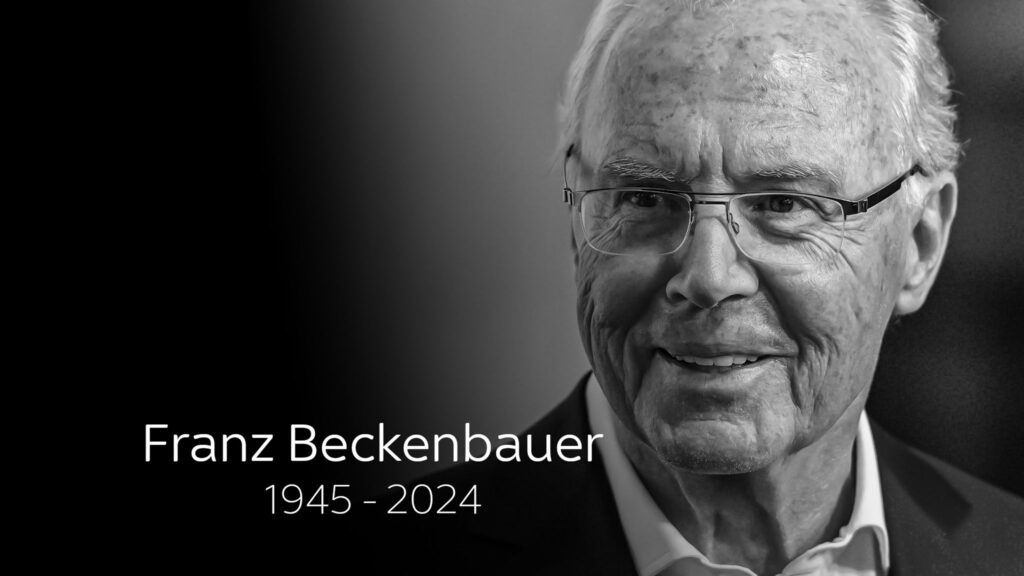German legend Franz Beckenbauer, widely regarded as one of football’s greatest players, has died aged 78.
He won the World Cup as captain of West Germany in 1974 and lifted the trophy again as manager in 1990.
The former defender also played 582 times for Bayern Munich, again winning the German top flight as both as a player and a manager.
Nicknamed Der Kaiser, as a player he also won the European Championship in 1972, as well as the Ballon d’Or twice.
A statement from his family to German news agency DPA read: “It is with deep sadness that we announce that my husband and our father, Franz Beckenbauer, passed away peacefully in his sleep yesterday, Sunday, surrounded by his family.
“We ask that you allow us to grieve in silence and refrain from asking any questions.”
Playing as a midfielder, Beckenbauer man-marked Sir Bobby Charlton in the 1966 World Cup final, which England won 4-2, before shifting to his iconic position as a defensive sweeper.
He also scored four goals at the 1966 World Cup, aged just 20, and won the award for the tournament’s best young player.
He went on to play 103 times for West Germany.
Beckenbauer is one of only three men to have lifted the World Cup as both a player and a manager, along with Brazil’s Mário Zagallo and France’s Didier Deschamps.
As a player at Bayern, he won four league titles and was captain for the German giants’ three European Cup wins in 1974, 1975 and 1976. He also won the Bundesliga with Hamburg.
“The Bundesliga family is devastated to learn of the death of Franz Beckenbauer. A true icon, then, now, and always. RIP, Der Kaiser,” the league said.
Bernd Neuendorf, president of the German Football Association, said Beckenbauer was “one of the best players our sport has ever seen”.
“We look at his life’s work with respect and great gratitude,” he said.
“With him, we are losing a unique footballer and a lovable person.
“With his lightness, his elegance and his overview, he set standards on the field.
“Franz Beckenbauer leaves a great legacy for the DFB and football as a whole.”
Source: BBC
